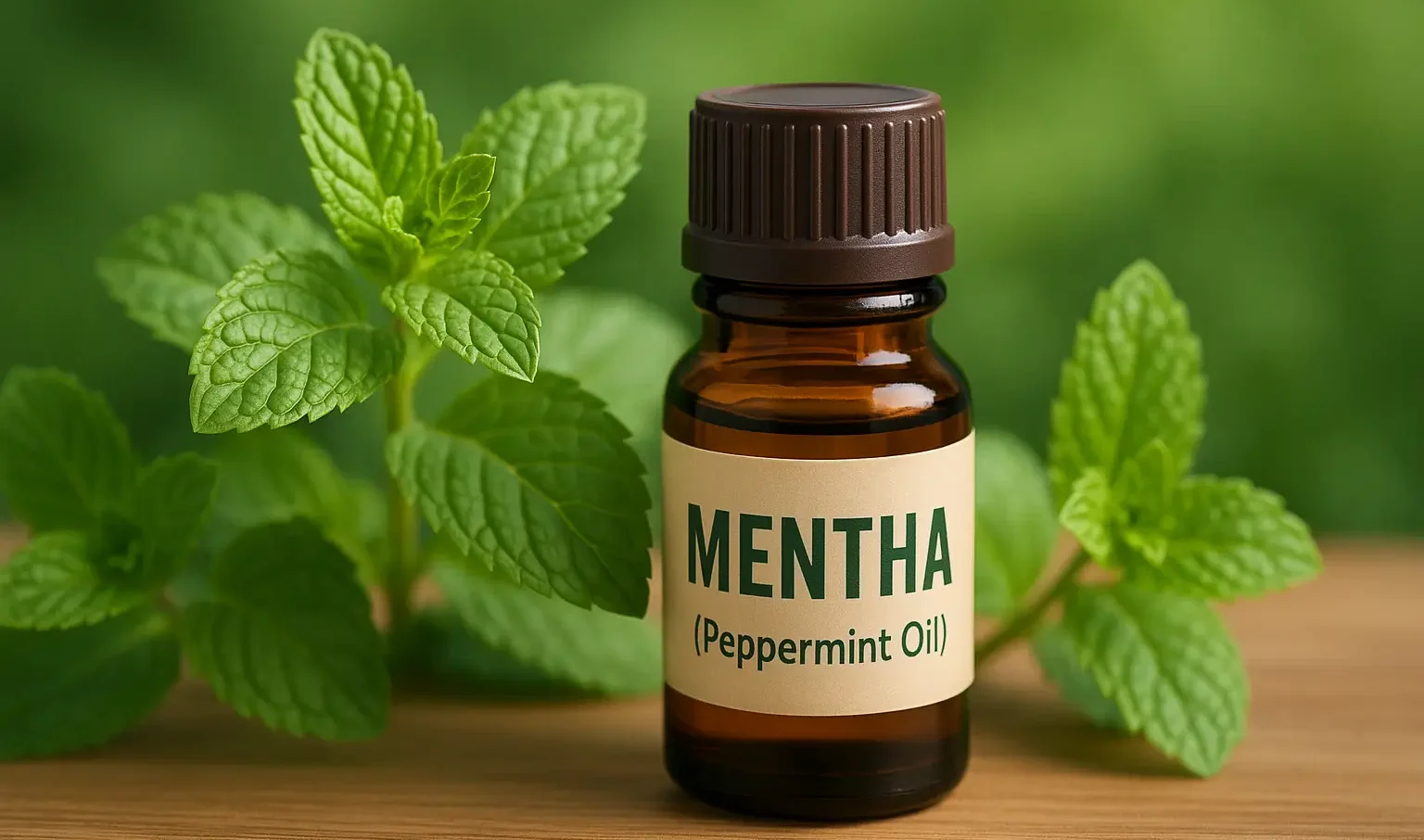General Introduction to Mentha (Peppermint Oil):
- Mentha, particularly peppermint, is a major source of volatile oils widely used for its cooling, carminative, and antimicrobial properties.
- The oil contains menthol as its principal constituent, which is responsible for its characteristic aroma and therapeutic effects.

Synonyms of Mentha (Peppermint Oil):
- Common name: Peppermint
- Scientific name: Mentha piperita
- Synonyms: Mint oil, Pudina oil (Hindi)
Biological Source:
- Volatile oil is obtained from the fresh leaves and flowering tops of Mentha piperita.
Family:
- Lamiaceae
Composition:
- Major constituents:
- Menthol (40-50
- Menthone (15-30
- Menthyl acetate
- Limonene
- 1,8-Cineole (Eucalyptol)
- Minor constituents include carvone, pulegone, and pinene.
Advertisements
Chemistry & Chemical Classes:
- Chemical Class: Monoterpenoids and sesquiterpenoids.
- Structure:
- Menthol is a cyclic monoterpenoid alcohol.
- The oil primarily consists of terpene hydrocarbons and their oxygenated derivatives.
Therapeutic Uses:
- Carminative: Relieves flatulence and gastrointestinal discomfort.
- Antispasmodic: Reduces spasms of smooth muscles.
- Antimicrobial: Effective against certain bacteria, fungi, and viruses.
- Cooling effect: Menthol provides a cooling sensation and is used in treating headaches and minor burns.
- Decongestant: Helps in relieving nasal congestion and respiratory conditions.
Commercial Applications of Mentha (Peppermint Oil):
- Used in pharmaceutical formulations like inhalers, balms, and antispasmodic drugs.
- Flavoring agent in toothpaste, chewing gum, and candies.
- Aromatherapy for its calming and refreshing effects.
Click Here to Watch the Best Pharma Videos

